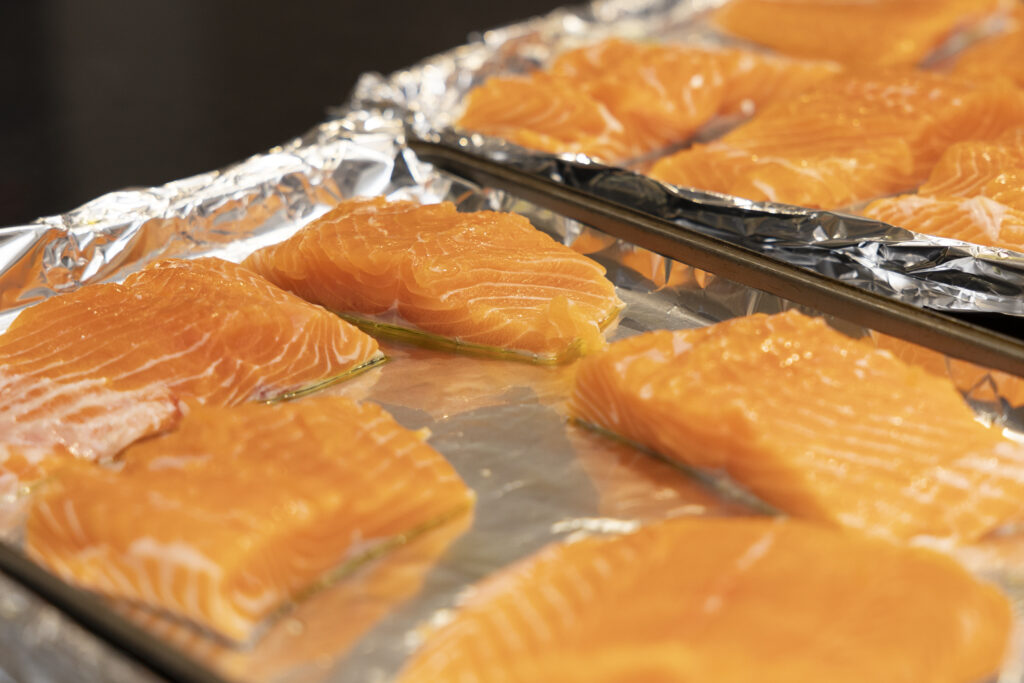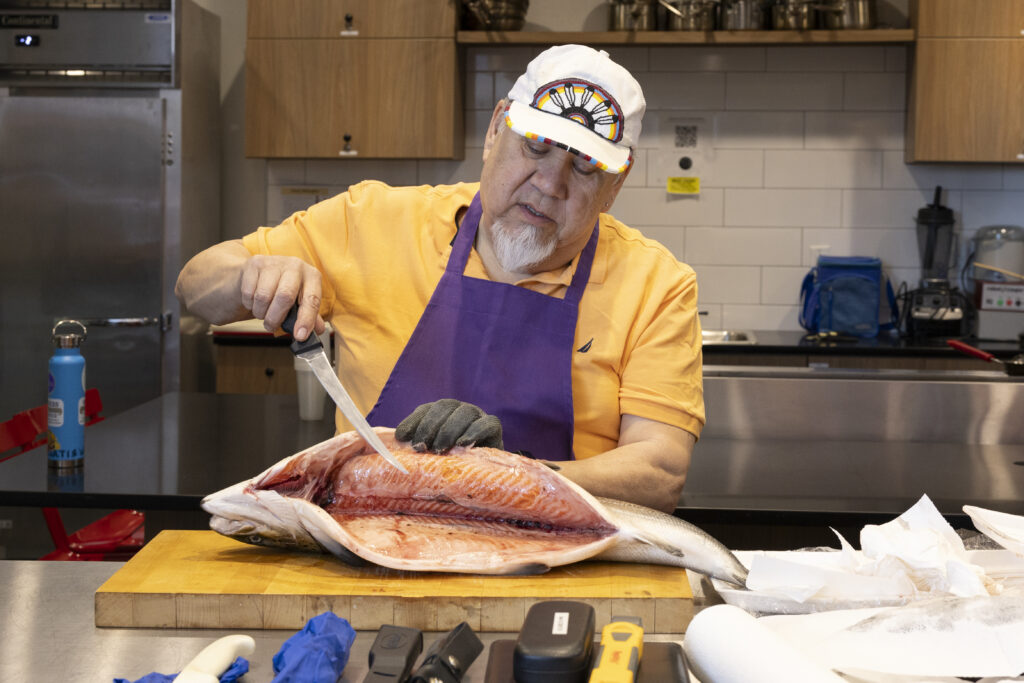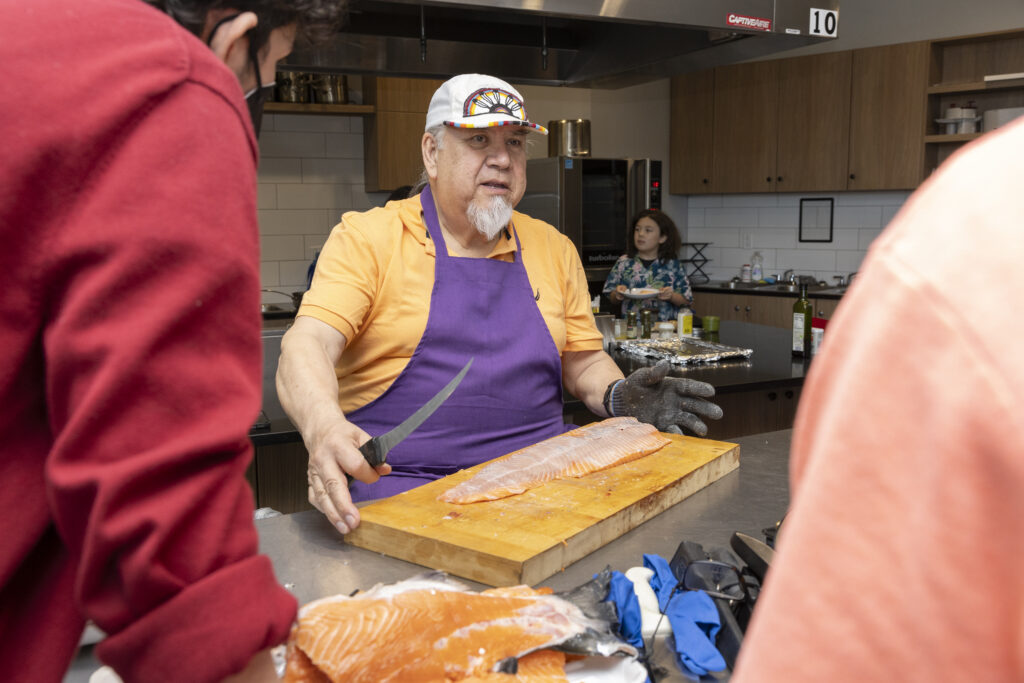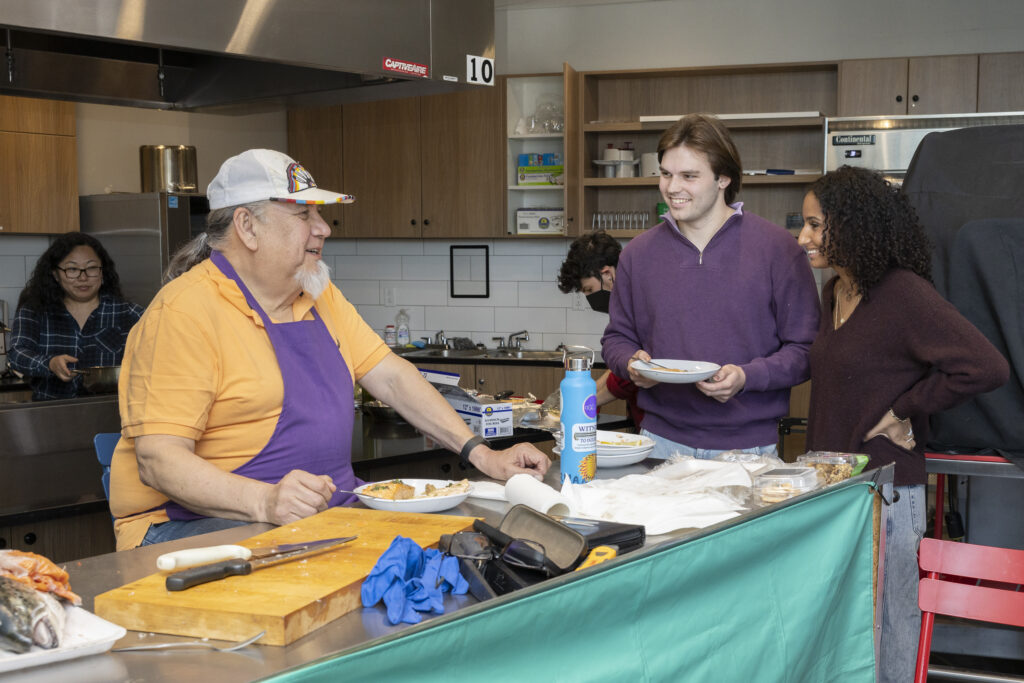On Sunday April 13, 2025, we gathered at the Salt City Market Test Kitchen to learn from Curtis Waterman, a member of the Hunter-Gatherer crew at Onondaga Nation Farm. Curtis specializes in Indigenous fishing traditions and waterways, and taught us how to process whole salmon. He talked us through how to kill the fish for easier gut removal, what to do with the bones and head once you’ve gotten the fillets (make bone broth), and everything in between. After processing the fish, we learned how to cook the fillets to the appropriate temperature and how to dress them up for delicious flavor. Some participants even got to try raw fish for the first time, exclaiming their lives were forever changed.!
The salmon processing workshop with Curtis came about through a series of carefully crafted and meaningful relationships. Earlier this year, SOFSA and the Onondaga Food Rescue Network got a call from Local Coho, a fishery in Auburn that supplied sushi-grade salmon to markets in New York City. Local Coho was closing, and they needed to find a way to donate over 30,000 lbs of fresh salmon, still alive in their tanks. Various other partners, including the Food Bank of CNY, were called in to figure out the logistics of this operation. There were places to send the fish, but first, it would need to be harvested, transported, processed, kept frozen in cold storage, and then transported again to pantries on days where it could be distributed.
In an effort to widen the distribution channels, we reached out to Curtis to see if Onondaga Nation could make use of any of the fish. Not only could they, but the logistical puzzle that all the partners were trying to put together didn’t apply. Curtis and his Onondaga neighbors were able to take a couple of trucks up to Local Coho, and drive back with about 230lbs of fresh salmon. Together, they processed fillets and steaks, and then froze or smoked them to be distributed in the following weeks.
At this small scale, the Onondaga Nation Farm had the connections, knowledge, and capacity to take in this fish and feed a couple hundred people. Their ability to carry this off is a testament to the ways in which the Onondaga Nation is using their ancestral wisdom to build up their food sovereignty. Through the activities of the Farm, they are able to supply their community with culturally-appropriate, ancestral foods acquired through ecologically-sound methods. These include ancient varieties of corn, beans, and squash, which are elevated and made more nutritious through the specific ways of preparation that the Onondaga Nation have passed on through generations.










